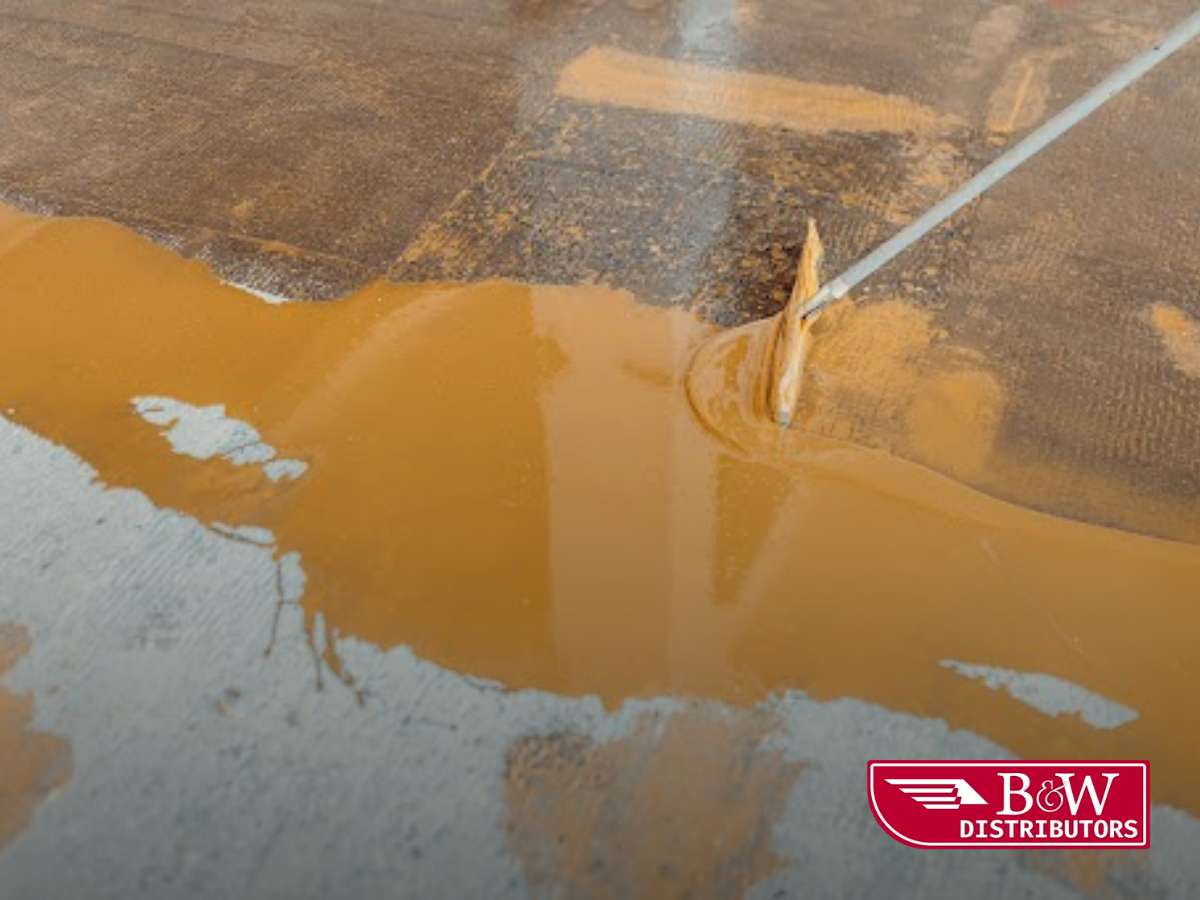What Is The Difference Between Conductive & Antistatic Flooring?
Conductive & Antistatic Flooring: Installing Industrial Coating For Your Flooring
Flooring is essential in any space, from homes to commercial buildings, laboratories, data centers, and manufacturing facilities. It is crucial to choose the right flooring based on the intended use of the space and the equipment or machinery that will be present. Two common types of flooring often compared are conductive flooring and antistatic flooring. While they may seem similar, there are significant differences between them that can impact their effectiveness.
A trusted US Southwest industrial coating supplier will explain below their differences so you can make an informed decision if you’re considering any of them.

Conductive Flooring
Conductive flooring is a type of flooring designed to conduct electricity (hence its name). It is often used in environments where electrostatic discharge (ESD) is a concern, such as in data centers or laboratories. ESD occurs when two objects with differnt electrical charges come into contact, causing a sudden flow of electricity between them. This discharge caen damage electronic equipment, resulting in downtime, data loss, or equipment failure.
Conductive flooring is typically made of conductive materials, such as carbon or graphite, which are mixed into the flooring material during production. The conductive materials allow the flooring to discharge electricity, preventing ESD from occurring. Conductive flooring can also be grounded to reduce the risk of ESD.
While conductive flooring can be effective to prevent ESD, it may not be suitable for all environments. For example, if the environment involves flammable or explosive materials, conductive flooring can create a risk of sparks and fires. In these cases, antistatic flooring may be a more appropriate choice.
If you’re unsure about installing conductive flooring in your installation, be sure to ask an expert or a US Southwest industrial coating supplier first.
Antistatic Flooring
Antistatic flooring is designed to reduce static electricity buildup on people and equipment. Therefore, ESD flooring systems fit into this concept, but they’re not the same per sé. Some materials can offer less charge buildup when you use them for flooring, but static control flooring needs a connected ground so that charges can stay away safely.
Antistatic flooring is often used in environments where static electricity can cause damage or injury, such as manufacturing facilities or healthcare settings.
It is typically made of materials with high electrical resistance, like vinyl or epoxy.
These materials limit the flow of electricity, reducing the risk of static electricity buildup. Unlike conductive flooring, antistatic flooring is not designed to conduct electricity. Instead, it allows static electricity to dissipate slowly, preventing sudden discharges that can damage equipment or cause injury.
One of the key benefits of antistatic flooring is that it can be used in a wider range of environments than conductive flooring. It is suitable for use in areas where flammable or explosive materials are present, as it does not create a risk of sparks or fires. Antistatic flooring can also be used in areas where conductive flooring may not be practical or cost-effective.
Remember to contact a US Southwest industrial coating supplier if you have doubts about antistatic flooring.
Requirements For An ESD Flooring
An ESD flooring system must meet these requirements to prevent damage from electrostatic discharge:
- It should not produce triboelectric charges, which are electric charges generated when materials come into contact and separate.
- The ESD flooring system must have a direct path to the ground to facilitate the dissipation of statically generated charges.
- The ESD flooring needs product qualification and verification compliance, so it should also have technician specifications regarding this topic.
These requirements ensure that the ESD flooring system can effectively protect electronic equipment and other sensitive devices from damage caused by electrostatic discharge.
When choosing between conductive and antistatic flooring, you must consider some factors.
The first is the intended use of the space. If the environment involves sensitive electronic equipment or materials that are sensitive to ESD, conductive flooring may be the best choice. However, if the area will have flammable or explosive materials, antistatic flooring may be the safer option.
Another factor to consider is the cost of the flooring. Conductive flooring is typically more expensive than antistatic, due to the cost of the conductive materials used in its production before reaching a US Southwest industrial coating supplier. In some cases, antistatic flooring may be a more cost-effective solution, especially if the risk of ESD is relatively low.
Finally, it’s always important to consider the maintenance requirements of the flooring. Conductive flooring requires regular grounding to ensure that it remains effective in preventing ESD. Antistatic flooring, on the other hand, does not require grounding but may require additional maintenance to ensure that it remains effective in dissipating static electricity.
Finding The Best Industrial Coating In US Southwest
In conclusion, selecting the appropriate type of flooring for your workplace is crucial to ensuring that electrostatic discharge does not cause any damage to sensitive equipment or machinery. By understanding the differences between conductive and antistatic flooring, you can make an informed decision that meets your specific needs.
If you’re interested in installing industrial coating for your flooring, get in touch today with B&W Distributors, Inc. We are a reputable supplier who can provide you with high-quality and durable products.

B&W DISTRIBUTORS INC.
Tel: (480) 924-8883
Email: info@bwdist.com
Web: https://www.bwdist.com/
ARIZONA
2702 N Ogden #107
Mesa, AZ 85215






